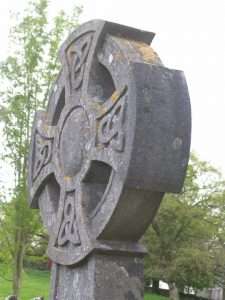“If then there is any encouragement in Christ” Philippians 2:1
One of the paradoxes of Christian history is that the church has seemed stronger during times of persecution; it seems that attempts to suppress Christianity have actually been good for the health of the church.
It seems a common sense conclusion that if something is difficult it makes us stronger than something that is easy. If we never have to work hard, if life is always easy, if there are no demands upon us, it is easy to become soft and lazy. Often it is doing the things we don’t like, having to work harder than we would choose, going through experiences we would prefer not to have, that makes us into the people we are.
It was the hard experiences that shaped the Church in the days of Saint Paul. If being a follower of Jesus meant that you were liable to be beaten up or thrown out of the community or even killed, then you thought very carefully about what you believed, and, if you believed, you did so with all your heart. There wasn’t much room for being a casual attender or a fringe member of the church, you were in or you were out. The church grew and grew and spread through the known world because there was absolute commitment on the part of its members and absolute confidence in their faith. Paul urges them to stand firm, “If then there is any encouragement in Christ”.
There was no need to be afraid because nothing could separate them from God. Paul wrote to the Christians at Rome, “I am convinced that neither death nor life, neither angels nor demons, neither the present nor the future, nor any powers, neither height nor depth, nor anything else in all creation, will be able to separate us from the love of God that is in Christ Jesus our Lord”. With such confidence, Christians could face everything that was thrown at them, even violent death, and still come out the winners.
One of the weaknesses of the church in Ireland is that it is part of the state. It is associated with schools and hospitals and organizations. Bishops are seen in the company of the great and the good. The church is seen as part of the fabric of traditional Irish society. The experience of being a national institution has made the church soft and complacent.
Even when there is criticism of aspects of church life, those who do the criticizing still profess the same beliefs as the church – the Taoiseach’s criticism of the Vatican in June came from the perspective of one who shared the beliefs of those he attacked. Because of the comfortable situation enjoyed by the church there has been a reticence about condemning the State at times when things should have been said. The Church of Ireland has shared that reticence. Read Sean O’Casey’s autobiography and his account of Ireland in the 1920s and 1930s makes grim reading. The Church of Ireland seemed to say nothing
Paul envisages us as struggling for what we believe, in putting clear space between ourselves and the State, he thinks we should contend ‘as one man for the faith of the gospel’. Whatever happens, conduct yourselves in a manner worthy of the gospel of Christ’, he says.
We have been lulled into a sense of complacency; much of what goes on in the country contradicts the Gospel, but we say nothing. Eventually, a choice has to be made. There will be some who will be like those in John 6:66, ‘From this time many of his disciples turned back and no longer followed him”.
Many of the followers of Jesus did not want any adversity. There are many people now who are happy with a traditional, institutional church that says nothing and slowly fades away
The question that Jesus asks us his followers is one that confronts us, “You do not want to leave too, do you?”
The answer Peter gave, is “Lord, to whom shall we go? You have the words of eternal life. We believe and know that you are the Holy One of God.”
It is with such assurance that Paul can write to his readers that “If then there is any encouragement in Christ . . . Let the same mind be in you that was in Christ Jesus. ”
What do we believe? What would we face for what we believe?
